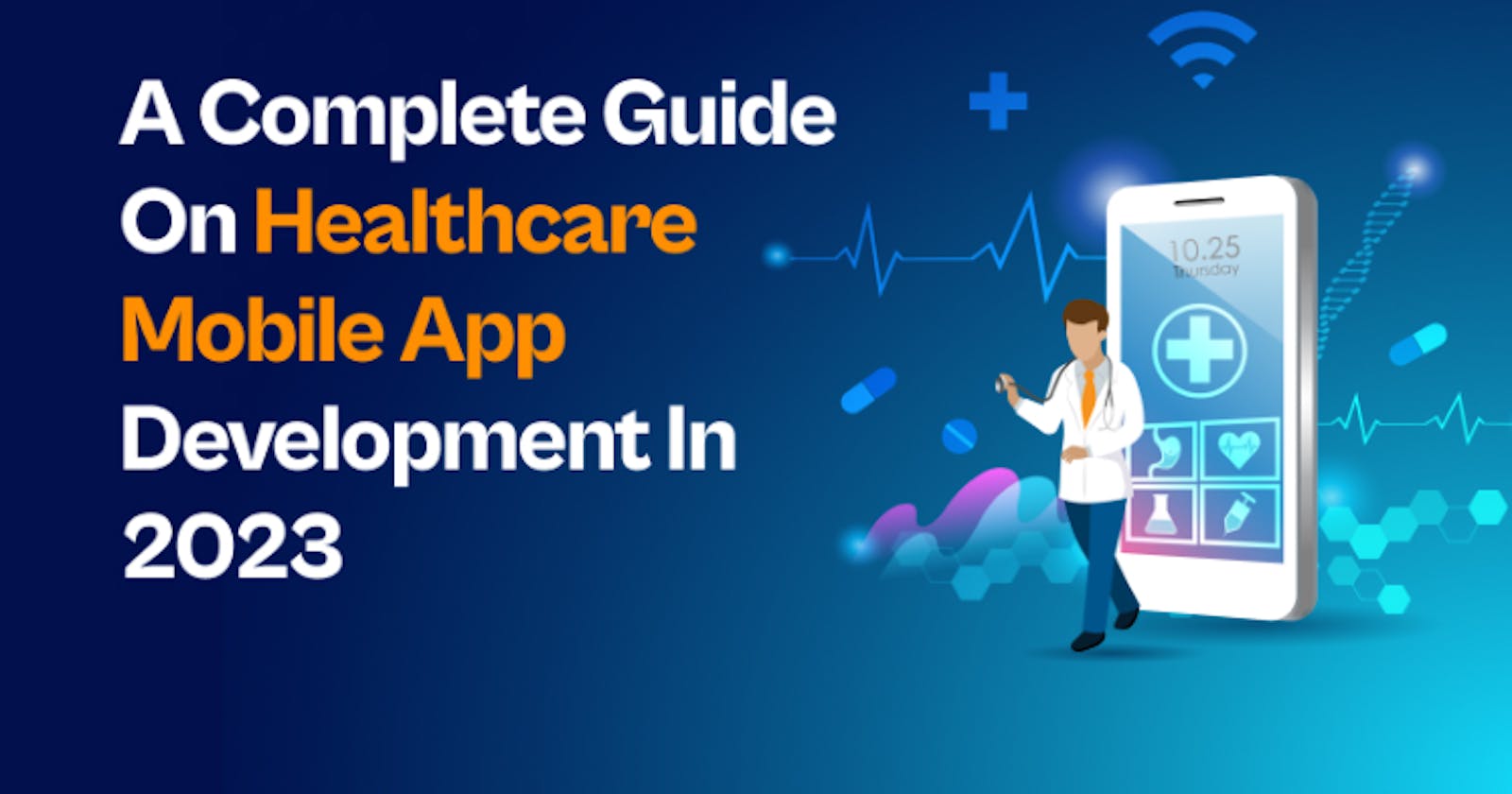People are increasingly using healthcare applications to assess their health via statistics, data, and analysis.There are situations where patients may not necessarily have to physically go to a hospital and meet doctors for assistance.
That's why it is crucial for the healthcare industry to embrace the development of mobile apps for healthcare. But just developing a Healthcare application is not enough, it's crucial to pay attention to app features and presentation. Most healthcare apps fail to meet the modern customers requirements. That is why we need to know more before launching the application.
In this healthcare app development guide we will discuss all the key points you need to know before transforming your idea into reality. Let's dive into it.
Why is it Necessary to Create a Healthcare App?
Developing healthcare apps is beneficial for both professionals and patients. It helps professionals in monitoring, patient tracking, staff management, appointment booking etc. mHealth app can track Patients wellbeing, suggest seeking medical care and help to book appointments. As technology is developing continuously in Healthcare, doctors will be able to provide better guidance, and support for patents.
Types Of Healthcare Apps
1. Symptom Checkers
These apps are mostly for patients as these help to keep records of symptoms on their phones to answer doctor's questions. In these apps patients can record their symptoms.
2. Telemedicine
The motive of these apps are to host online calls between patients and doctors. It got popular during Covid - 19 to avoid hospital visiting risks. Using this type of application patients can safely talk to doctors on audio or video call and get the treatment. Before invensting in that, learn more about Telemedicine App Development Guide.
3. Reminders
This type of healthcare apps prevent patients from forgetting their mediation or any other health related things which we might forget. These apps send push notifications as a reminder.
4. Nutrition & Weight Loss
These apps help in tracking the food we intake and count calories. How does it function? By using a vast database to search for and add the foods you ate throughout the day, you can keep a food diary and create goals. The programme can analyse the nutritional information and recommend certain meals to have a diet that is well-balanced, such as fibre-rich options like fruits and vegetables or low-sodium snacks.
5. Meditation
Users of this kind of app can get guided meditations to help them unwind, relax, and clear their minds. Some of them provide more features, including mood trackers or a group of other meditators who share similar beliefs. The most popular examples are Calm and Headspace.
6. Prescription Price Comparison
These are often fairly basic apps that gather data on the prices of pharmaceuticals in various pharmacies as well as any current coupons or reductions that may be available. In the US, drug price checks are widely used.
Key Features of Successful Healthcare Apps
Depending on their goal and audience, healthcare apps' primary attributes may change. However, the following are some standard attributes of healthcare apps:
1. User profile
Users can create a personal account and preserve health-related data including their medical history, allergies, and prescriptions by creating a user profile.
2. Tracking and monitoring
Users can track and keep track of health-related information, like blood pressure, heart rate, and calorie intake, with this function.
3. Reminders and notifications
Users of healthcare applications can receive notifications and reminders for their fitness routines, doctor appointments, and medication schedules.
4. Telemedicine services
Telemedicine features, which enable users to communicate with medical experts remotely via video calls or chat, are included in some healthcare apps.
5. Data privacy and security
Healthcare apps must have strong security features like user authentication because they deal with sensitive personal health data.
What Is The Price Of Creating A Healthcare Application?
The complexity of the app, the features required, the platform it will be created for, and the location of the development team can all significantly affect how much it costs to develop a healthcare app.
The price might range from $20,000 to $50,000 for a simple healthcare app with common features like patient registration, appointment booking, and encrypted chat. However, more sophisticated apps can cost $100,000 or more and include features like telemedicine, electronic medical record integration, and diagnostic tools powered by artificial intelligence.
It's vital to remember that the price of developing a healthcare app should also take ongoing maintenance and updates into account. The necessity for additional security measures to comply with healthcare standards like HIPAA may significantly raise the cost of development.
Overall, the price of developing a healthcare app can differ greatly depending on the particular needs of the app, thus it's advised to speak with a Healthcare App Development Company like MobileCoderz to get a more precise estimate.
Conclusion
The creation of healthcare apps will be essential in 2023 to address the rising demand for digital health services. It's crucial to follow the development process, think about the major features, give user experience top priority, put security and privacy precautions in place, and adhere to best practices while developing a healthcare app.
By speaking with MobileCoderz and remaining current with emerging trends, you may build a profitable and long-lasting digital health service. Creating a healthcare app can help you break into this expanding market because the future of healthcare is digital. With the aid of this thorough manual, you can develop a healthcare application that benefits users and the healthcare sector.
